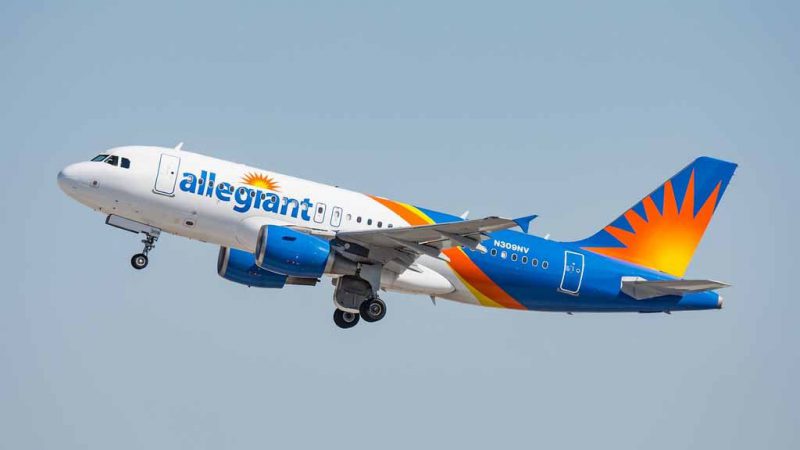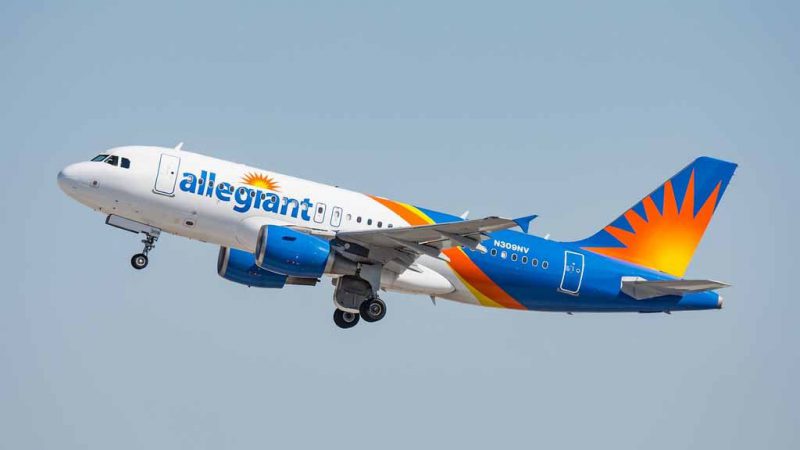FAA Cites Allegiant Air with Operations Violations
The Las Vegas-based regional airline claims it was following orders in operating a now-retired MD-80 aircraft
June 18, 2019

Federal safety regulators are proposing a fine of more than $715,000 against Las Vegas-based Allegiant Air, alleging the discount airline failed to properly fix an engine glitch that put out hotter-than-normal exhaust fumes. The FAA has charged Allegiant with operating an aircraft on more than two dozen flights following improper engine maintenance.
In October 2017, Allegiant asked the FAA if it could deactivate an MD-80’s functioning automatic reverse thrust system when the aircraft engine’s exhaust gas temperature exceeds normal limits. The FAA in December 2017 responded that deactivating that system would be improper unless the system caused the excess temperature, because the temperature exceedance could have other causes.
The FAA alleges that on April 13, 2018, the exhaust gas temperature of an Allegiant MD-88 engine exceeded normal limits while the plane was taking off from Roanoke Blacksburg Regional Airport in Virginia for Orlando Sanford International Airport in Florida. When this occurs, the MD-80 maintenance manual calls for turning off the automatic reverse thrust system, finding the cause of the excess temperature, and correcting the cause before turning the system on again.
Allegiant said it followed a procedure developed by McDonnell-Douglas — now part of Boeing Co. — and later approved by the FAA, according to reports from Associated Press.
“The airline never jeopardized the safety of our aircraft or our operations,” Allegiant spokeswoman Sonya Padgett told reporter. “We believe the proposed fine is inappropriate and inconsistent with existing FAA policy.”
The FAA countered that it told Allegiant in 2017 not to deactivate an MD-80′s functioning automatic reverse thrust system unless the system itself was causing overly hot exhaust, because something else could be causing the high temperatures.
Allegiant has not determined the cause of the excess temperature, the FAA alleges. Instead, the carrier deactivated the system on April 14, 2018, and installed an inoperative placard on it.
Between April 14, 2018, and April 22, 2018, Allegiant operated the MD-88 on 28 passenger-carrying flights without determining the cause of the excessive engine exhaust gas temperature, the FAA alleges. As a result, Allegiant violated the terms of its FAA-issued operations specifications, the agency alleges. Allegiant ended McDonnell Douglas operations when its last MD-83/8 flights departed on November 28, 2018. At the time, Allegiant had been operating with sixteen MD-83s and three MD-88s. The fleet is now an all-Airbus operation consisting of thirty-seven A319-100s and fifty-two A320-200s.
The Las Vegas-based carrier has 30 days after receiving the FAA’s enforcement letter to respond to the agency.




